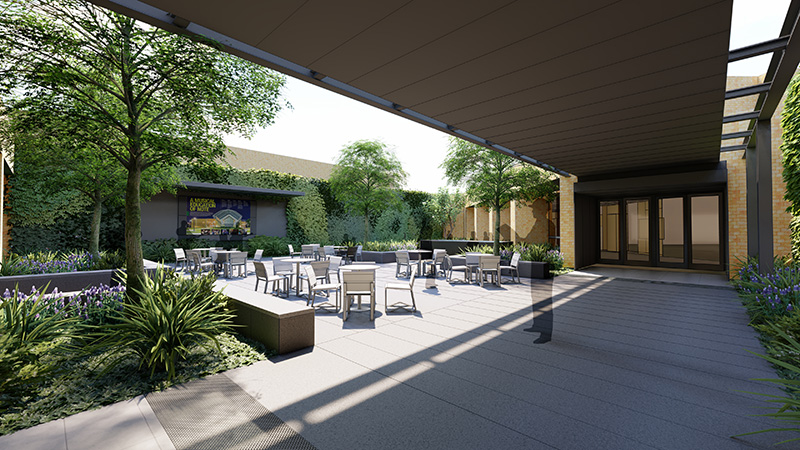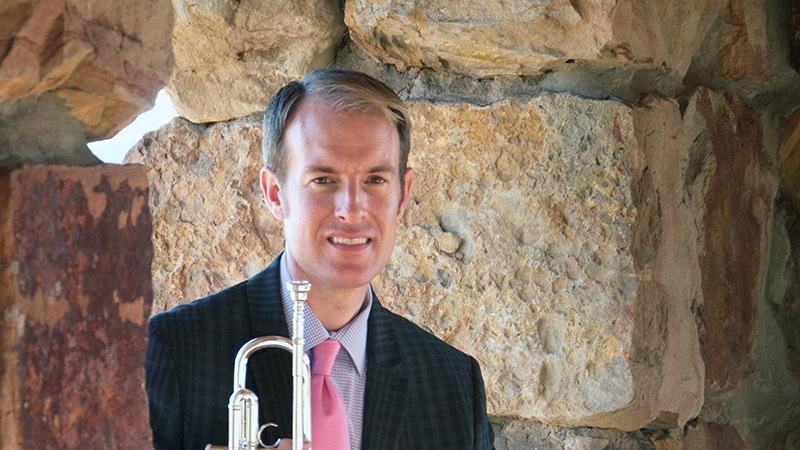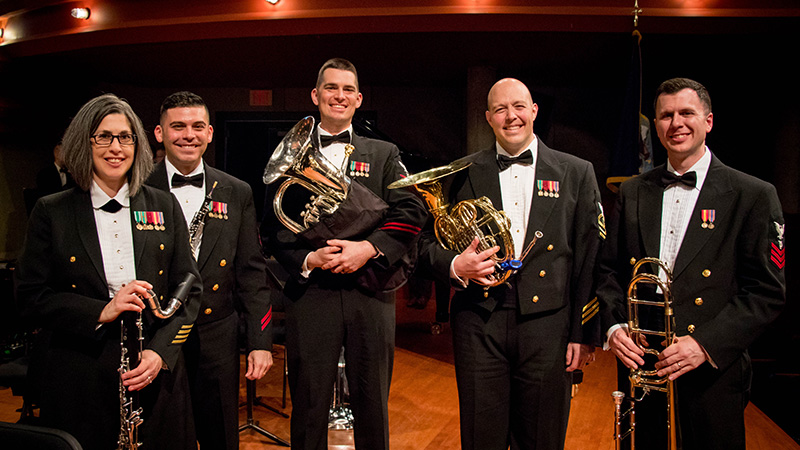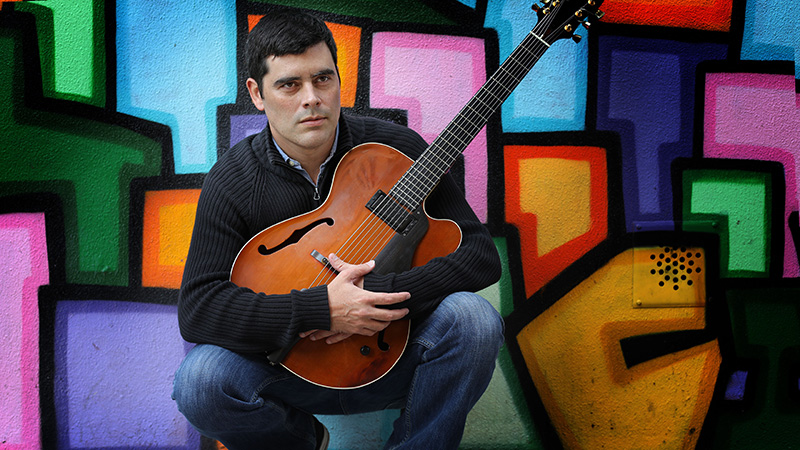Undergraduate Requirements
This page lists the classical audition requirements for all undergraduate majors.
To review jazz repertoire requirements, please visit jazz.unt.edu/admission-auditions.
Transfer composition applicants must submit several representative manuscript compositions. Material will not be returned. See composition.music.unt.edu for details.
PLEASE NOTE:
- Sight reading may be included in each audition
- Unless your instrument specifically indicates otherwise, all classical instrumental applicants are expected to audition without accompaniment of any kind
Bassoon
Weber - Concerto in F Major; any Vivaldi concerto; Hindemith - Sonata; Telemann - Sonata in F minor. All major and minor scales. Please note that the works listed are only suggested pieces; any standard work of comparable quality is acceptable. There is no memory requirement. The instrumentalist should prepare 10-15 minutes of music.
Cello
Review the UNT String Audition Requirements prior to submitting your application.
First movement of a standard concerto (Dvorak, Schumann, Tchaikovsky, etc.), and a movement of a solo Bach suite. Please note that the works listed are only suggested pieces; any standard work of comparable quality is acceptable. There is no memory requirement. The instrumentalist should prepare 10-15 minutes of music.
Clarinet
Please note live auditions are strongly suggested for all applicants. Applicants living within 150 miles from campus are expected to audition live unless prior approval has been granted by the faculty.
Concentration (Education, Composition, B.A. majors):
1.) One movement of a work from standard repertoire (such as Weber Concerti, Mozart Concerto, Krommer Concerto, St. Saens Sonata) or a complete work from standard repertoire (such as Weber Concertino, Rabaud Solo de Concours, Messager Solo de Concours, Osborne Rhapsody).*Please note that the works listed are suggested pieces; any standard work of comparable quality is acceptable. There is no memory requirement.
2.) Scales: all major scales. 3 octaves for E, F, F#, and G; 2 octaves for all others.
3.) Sight reading to be provided at the audition.
Performance Major:
1.) Mozart: Concerto in A Major, KV. 622, movement 1, exposition.
2.) A movement of a contrasting work from standard repertoire (such as Weber Concerto No. 1, St. Saens Sonata, Poulenc Sonata, Stravinsky Three Pieces) or a complete work from standard repertoire (such as Weber Concertino, Rabaud Solo de Concours, Messager Solo de Concours, Osborne Rhapsody). *Please note that the works listed are suggested pieces; any standard work of comparable quality is acceptable. There is no memory requirement.
3.) Orchestral excerpts:
a. Beethoven Symphony #6, mvt. 1 (2 before K to m. 492)
b. Beethoven Symphony #6, mvt. 2 (D through end of m. 77)
c. Brahms Symphony #3, mvt. 2 (beginning through B)
4.) Scales: all major and melodic minor scales, 3 octaves for E, F, F#, and G; 2 octaves for all others.
5.) Sight reading to be provided at the audition.
Double Bass
Review the UNT String Audition Requirements prior to submitting your application.
First movement from any of the standard double bass concertos or equivalent single-movement works, e.g., Bottesini, Dragonetti, Dittersdorf, Koussevitzky, etc., and two standard orchestral excerpts. Please note that the works listed are only suggested pieces; any standard work of comparable quality is acceptable. There is no memory requirement. The instrumentalist should prepare 10-15 minutes of music.
Electronics*
Undergraduate applicants may audition with Electronics as their musical instrument concentration for the Bachelor of Arts and Bachelor of Music Degree in Music Composition. The audition consists of the submission of a pre-screening portfolio as well as an on-campus audition.
The pre-screening portfolio will consist of a video (up to 7 minutes) and audio examples (up to 2 tracks, 5 minutes each) that demonstrate your use of technological tools in your creative process. The video and audio files will be submitted through the Acceptd application portal.
Faculty will evaluate the creative breadth and imagination as well as the technical skill of the pre-screening portfolios. Finalists will be invited to campus for a live audition.
*Electronics is a broad category of creating audio and audio/visual music using electronic devices including computing devices (computers/tablets/phones), electronic audio hardware (analog synthesizers/digital controllers), and audio/arts technology software (audio production/video production/music programming languages).
Euphonium
Concentration (Education, Composition, B.A. majors): Galliard - Sonata No.1; Hutchinson - Sonatina; Rochut - Melodious Etudes (any etude in book 1); Any solo from the performance major list below; all major scales. Please note that the works listed are only suggested pieces. Standard works of comparable quality may be substituted with prior approval of the euphonium faculty.
Performance Major: (required to choose one solo from this list and the Arban’s study. There is no memory requirement.) Guilmant – Morceau Symphonique; Barat – Andante et Allegro; Capuzzi/Catelinet – Andante and Rondo; Bellstedt – Napoli; Pryor – Blue Bells of Scotland; Arban – Characteristic Study No. 1
Flute
J. S. Bach - any sonata; Poulenc - Sonata; Hindemith - Sonata; Mozart - Concerto in G or D; Griffes - Poem; any Paris Conservatory piece. All major and minor scales. Please note that the works listed are only suggested pieces; any standard work of comparable quality is acceptable. There is no memory requirement. The instrumentalist should prepare 10-15 minutes of music.
Classical Guitar
All auditions must be performed on a nylon string classical guitar.
Concentration: Selections from studies by Sor, Carcassi, Brouwer or other works of comparable difficulty. All repertoire should be played from memory
Major: Milan - Pavanas; Tarrega - Preludes; Ponce - Preludes; Bach - selected mvt. from lute or cello suites; Sor - Studies 1-20. Please note that the works listed are only suggested pieces; any standard work of comparable quality is acceptable. The instrumentalist should prepare 10-15 minutes of music and all repertoire should be played from memory.
Harp
- A solo performed from memory, showing technical proficiency and musicianship. The solo should display a minimum difficulty level represented by the suggested repertoire (Solos of a higher difficulty level may be substituted.): Impromptu Caprice (Pierné), Chanson dans la nuit (Salzedo), Féerie, Vers la source dans le bois, or Etude de concert (Tournier), Any Naderman Sonata, Sarabanda e Toccata (Nino Rota), Concerto in Bb, mvt. 1 (Handel, any transcription), any of the Six Sonatinas, (Dussek), Absidioles (Andres), La Source (Hasselmans), Variations on a Theme of Mozart (Glinka), Sonata (Parry)
- A second solo of your choice. The work should be from a contrasting style and period, compared to the first solo.
- One cadenza from an orchestral work such as: Waltz of the Flowers or Swan Lake (Tchaikovsky), Young Person’s Guide to the Orchestra (Britten), or Capriccio Espagnol (Rimsky-Korsakov).
Harpsichord
Performance of works from the standard repertoire: Bach inventions, Scarlatti sonatas, Couperin, etc. Students with little or no harpsichord experience will be considered for major if there are equivalent skills on organ or piano.
Horn
Two contrasting selections of complete movements or pieces from standard solo repertoire. Suggestions include (but not limited to): Mozart – Concerto Nos. 2, 3, or 4; Strauss, R. – Concerto No. 1; Strauss, F. – Concerto; Strauss, F. – Nocturno; Beethoven – Sonata; Bozza – En Foret; Dukas – Villanelle; Hindemith – Sonata; Heiden – Sonata. No memorization or accompaniment required.
You may substitute an etude by one of the following composers for one of your selections if it as at least one page in length: Barboteu, Gallay, Hackleman, Kling, Maxime-Alphonse, Neuling, Reynolds, Schuller, Shoemaker.
In addition to the repertoire requirements listed above, applicants should be prepared for the following:
- Major scales, two octaves, memorized
- Chromatic scale, full range of instrument
- Sight-reading
Oboe
One slow and one fast etude from the collection of 48 Etudes, Op. 31 by W. Fehrling, and two contrasting movements of major repertoire, in addition to major and minor scales. There is no memory requirement. The instrumentalist should prepare 10-15 minutes of music.
Organ
Performance of organ music from the standard repertoire (Bach, Buxtehude, Brahms, Franck, Reger, Vierne, Dupre, Langlais, etc.) of approximately twenty minutes in length. Memorization is not required. Applicants will be asked to perform one hymn of their choice at the beginning of the audition. An improvised or otherwise creative introduction is at the discretion of the applicant. Sight reading material to be specified by the jury. Students should present repertoire list of all works studied in high school.
Percussion
See percussion.music.unt.edu/auditions for additional details.
All Classical Percussion Degrees: Mallets, Snare Drum and Timpani: Percussion Concentrations include degrees such as Music Education, Composition, and BA. If you are applying for a Percussion Performance degree (orchestral player, solo performer, etc.) the expectations are higher and you should be able to perform more advanced literature. You should select pieces that best showcase your ability level. Final acceptance as a music major with a percussion emphasis will be determined by an audition consisting of:
- Prepared solos or etudes on mallets, timpani, and snare drum
- Sightreading on snare drum and marimba
- Scales on marimba and rolls, flams, and associated rudiments on snare drum
Jazz Studies Degree (drum set primary instrument): Drum Set, Mallets and Snare Drum: All applicants for Jazz drum set must perform the following as 3 separate auditions:
- A snare drum solo or etude and sight reading
- A marimba or vibraphone solo (can be a jazz or classical selection), sight reading and scales
- Drum set audition - https://jazz.unt.edu/admission-auditions/percussion
Jazz Studies Degree (vibraphone primary instrument): Vibraphone Snare Drum: All applicants for Jazz vibraphone must perform the following:
- A published solo vibraphone etude or a standard jazz ballad chord solo
- Melody and improvise at least two choruses on a medium tempo jazz standard (swing or bossa) performed to a pre-recorded track (Jamey Aebersold recording or the equivalent)
- Sight read a jazz style melody on vibraphone
- Classical Snare Drum: A rudimental and/or orchestral snare solo or etude; rolls, flams, and associated rudiments
Piano
The two categories of piano study are Performance and Concentration.
- For acceptance as a Piano Performance Major a live audition is required. All selections must be memorized. A screening recording is required for piano performance applicants. View screening recording information here. All candidates should prepare as a minimum level: 1) Prelude and Fugue of Bach OR a complete Partita, Toccata or Suite of Bach, from which the faculty will select a few movements; 2) COMPLETE classical sonata (Haydn, Mozart, Beethoven) from which the faculty will select a movement; 3) Third piece in contrasting style.
- For Piano Concentration (composition, music education, BA in Music) a live audition is preferred. All recorded auditions must be video (see College of Music application for details). The concentration audition must include a Prelude and Fugue of Bach, one sonata movement of medium difficulty, and another contrasting piece which is to be played by memory. (First two selections may be played from score.)
Saxophone
Boutry - Divertimento; Orrego - Salas - Quattro Liriche; Muczynski - Concerto; Ibert - Concertino da Camera. Recorded auditions submitted for saxophone must be video. Please note that the works listed are only suggested pieces; any standard work of comparable quality is acceptable. There is no memory requirement. The instrumentalist should prepare 10-15 minutes of music.
Trombone (Bass)
Concentration (Education, Jazz, Composition, B.A. majors): (required to choose one solo from this list) Jacob - Cameos (any 3 mvts.); Lebedev – Concerto in One Movement, Telemann Sonata in f minor (1st & 2nd mvts.). Substitutions are subject to prior approval by the trombone faculty.
Performance Major: (Required to choose one solo from this list. There is no memory requirement.) Koetsier – Allegro Maestoso; Lebedev - Concerto in One Movement; Sachse – Konzert.
Trombone (Tenor)
Concentration (Education, Jazz, Composition, B.A. majors): (required to choose one solo from this list) Saint-Saens Cavatine; David - Concertino (mvts. 1 & 2); Barat - Andante et Allegro. Substitutions are subject to prior approval by the trombone faculty.
Performance Major: (Required to choose one solo from this list. There is no memory requirement.) David - Concertino (mvts. 1 & 2); Hindemith Sonata (mvmts. 1 & 3); Serocki Sonatina.
Trumpet
Concentration (Education, Composition, and BA majors):
- Sight reading.
- Major scales (including chromatic).
- Choose one solo from this list. No memory requirement. Arutunian - Concerto; Hummel - Concerto (1st Movement); Haydn - Concerto (1st movement); Goedicke - Concert Etude; Ropartz - Andante et Allegro; Kennan - Sonata (1st Movement); Halsey Stevens - Sonata (1st Movement), Ewazen - Sonata (1st Movement); Brandt - Concertpiece (either one).
Jazz Studies: In addition to the required jazz audition repertoire listed here https://jazz.unt.edu/admission-auditions/trumpet-undergrad, jazz studies applicants should prepare the following classical trumpet audition requirements, which will be performed for the jazz trumpet faculty:
- Sight reading
- Major scales (including chromatic).
- Choose one solo from this list. No memory requirement. Arutunian - Concerto; Hummel - Concerto (1st Movement); Haydn - Concerto (1st movement); Goedicke - Concert Etude; Ropartz - Andante et Allegro; Kennan - Sonata (1st Movement); Halsey Stevens - Sonata (1st Movement), Ewazen - Sonata (1st Movement); Brandt - Concertpiece (either one).
Performance Major:
- Sight reading and transposition.
- Major Scales (including chromatic)
- Etude: Bosquet - Etude 11, Brandt - Etude 2, or Sigmund Herring - Etude 36
- Solo: Choose one solo from this list. No memory requirement. Arutunian - Concerto; Hummel - Concerto (1st Movement); Haydn - Concerto (1st movement); Goedicke - Concert Etude; Ropartz - Andante et Allegro; Kennan - Sonata (1st Movement); Halsey Stevens - Sonata (1st Movement), Ewazen - Sonata (1st Movement); Brandt - Concertpiece (either one).
Tuba
Concentration (Education, Composition, and B.A. majors): Select one solo from the following: Barat - Introduction and Dance; Capuzzi/Catelinet - Andante and Rondo; Gregson - Concerto (1st movement); Hindemith - Sonata (any two movements); Marcello/Little - Sonata No. I or No. V. A standard solo work of comparable quality may be substituted with prior approval of the tuba faculty (email: donald.little@unt.edu).
Performance Major: (select one solo and prepare all orchestra excerpts): Hindemith - Sonata (any two movements); Lebedev - Concerto in One Movement; Gregson - Concerto (1st movement). Orchestral excerpts from: Mahler - Symphony No 1; Prokofiev Symphony No. 5; Wagner Die Meistersinger. (for questions about excerpts email: donald.little@unt.edu)
Viola
Review the UNT String Audition Requirements prior to submitting your application.
A movement from a standard viola concerto and a pair of movements from a Bach solo suite. Please note that the works listed are only suggested pieces; any standard work of comparable quality is acceptable. There is no memory requirement. The instrumentalist should prepare 10-15 minutes of music.
Violin
Review the UNT Violin Audition Requirements prior to submitting your application.
Please note a screening is required for violin performance applicants. The screening video(s) will be submitted through the online music application and will determine if an applicant is invited for a live audition. The screening is NOT required for violin concentration applicants.
Performance:
Screening:
1. Bach Violin Sonatas and Partitas (BWV 1001-1006): one movement
2. 1st or 3rd movement from a Romantic or Post-Romantic concerto (written after 1800)
Live audition (if invited):
1. Bach Violin Sonatas and Partitas (BWV 1001-1006): two contrasting movements from the same sonata or partita or Chaconne
2. 1st or 3rd movement from a Romantic or Post-Romantic concerto (written after 1800)
Either Bach or the movement of a concerto must be memorized.
Concentration (Education, Composition, and B.A.):
1. One or two movements from Bach Violin Sonatas and Partitas (BWV 1001-1006)
2. One movement of a concerto (or a concert piece) showing technical capacity above 3rd and 4th positions. (Exclusions: "Meditation" from Thais, or any similar slow pieces.)
3. One major and one minor scale (excluding G and A) in 3 octaves to be performed in sixteen notes, 8 or 12 notes per bow, quarter note = 80 or faster)
Voice
Undergraduate applicants to the Bachelor of Music degree in Vocal Performance or a Voice Concentration in Music Education, Composition, or to the Bachelor of Arts Degree in Music, will present two memorized selections (art song or aria, one of which should be in English and the other in another language). A third selection from the musical theater repertoire may be added, but the student must begin the audition with an art song or aria. The applicant may bring a pianist, or one can be provided by UNT. Length of audition is 5–8 minutes.
A screening recording is required for all voice applicants. Please refer to the document below for additional information regarding the screening and audition requirements.
Voice screening and audition information
Jazz voice applicants see http://jazz.unt.edu/auditions-jazz-voice.








































































